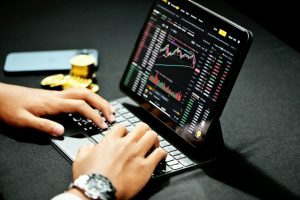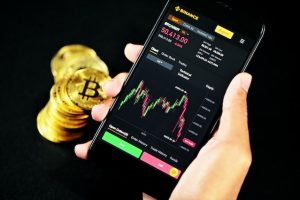Crypto market making has undergone a remarkable transformation propelled by technological development.
Automation, artificial intelligence (AI), and blockchain have reshaped market-making strategies, offering increased efficiency, improved liquidity, and enhanced risk management.
Today, we will take a look at how crypto market making emerged and what it looks like today.
Early Days of Market Making in Crypto

Back in the 2010s, when the crypto industry was just emerging and nascent cryptocurrency exchanges were sorely lacking liquidity, the first market maker came to the scene – GSR. It was one of the early adopters that used basic algorithms and a manual approach to buy and sell crypto assets continuously on different platforms.
With the evolution of the crypto market, it has got some more sophisticated approaches – the introduction of high-frequency trading (HFT) and advanced algorithms, which pushed market-making to the forefront of the crypto trading landscape.
Many companies and HFT traders started to focus solely on automated trading, having an impressive background in trading markets. In the mid-2010s, traditional financial companies started to express interest in crypto market making. Such firms as Jump Trading presented a crypto market-making desk in its operations. During and after the Bitcoin bull run in 2017, we witnessed the creation of such market making companies as Wintermute, Amber Group, and Alameda Research. That was the rise of crypto market making.
DeFi and Crypto Market Makers

In 2019 – early 2020s, with the emergence and development of decentralized finance (DeFi), the market making industry got many challenges and opportunities. Market makers had to adapt their strategies to a changing trading environment.
New concepts such as liquidity pools and crypto market making automation changed the way liquidity is provided, removing order books and placing algorithmic crypto price discovery through smart contracts. Some market makers switched to DeFi and became liquidity providers, while others preferred to stay in a market maker program on centralized crypto exchanges.
AI in Crypto Market Making
Artificial intelligence has introduced sophisticated analytical tools and predictive models into market making. Machine learning algorithms analyze vast datasets, identify patterns, and adapt strategies based on changing market trends. AI-powered market makers can make data-driven decisions, optimizing order execution and risk management with unseen efficiency and speed.
Blockchain Impact on Crypto Market Making

Blockchain technology has significantly impacted the transparency, security, and efficiency of crypto market-making:
- Smart contracts on blockchain networks facilitate the automated execution of trades, eliminating the need for intermediaries.
- The transparency provided by blockchain allows market participants to view and verify transactions in real time, fostering greater trust in the market.
The integration of AI and blockchain technology has elevated market making strategies, providing sophisticated analytics, predictive models, and enhanced transparency. As market makers continue to develop, they remain crucial in shaping the efficiency, liquidity, and trust within the digital asset market.
Author Profile

- Blogger by Passion | Contributor to many Business Blogs in the United Kingdom | Fascinated to Write Blogs in Business & Startup Niches
Latest entries
 BusinessApril 11, 2025How Hiring a Student Could Be the Best Move Your Business Makes
BusinessApril 11, 2025How Hiring a Student Could Be the Best Move Your Business Makes Living in LondonApril 9, 20255 Key Considerations for Long-Term Urban Rentals
Living in LondonApril 9, 20255 Key Considerations for Long-Term Urban Rentals EntertainmentApril 3, 20257 Slot Games that are Popular with Londoners
EntertainmentApril 3, 20257 Slot Games that are Popular with Londoners EventsMarch 25, 2025EGR Awards 2025: London’s Comeback After Losing ICE
EventsMarch 25, 2025EGR Awards 2025: London’s Comeback After Losing ICE




